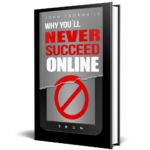If you’re just getting started as an affiliate marketer, you might be wondering how to leverage Facebook to grow your business, drive traffic, and earn commissions. Facebook remains one of the largest and most powerful social media platforms, with slightly over 3 billion active users each month. It offers incredible opportunities for affiliate marketers to reach a broad audience, build relationships, and promote affiliate products.
In this article, we’ll explore how to use Facebook effectively as an affiliate marketer, including step-by-step instructions to help you navigate the platform and maximise your success. By the end, you’ll understand how to benefit from Facebook as a beginner and take advantage of automation to streamline your affiliate efforts.
Why Facebook is a Goldmine for Affiliate Marketers
Facebook’s broad reach, highly targeted advertising options, and engaging community features make it ideal for affiliate marketing. Whether through organic posts, groups, or paid ads, Facebook provides numerous ways to connect with your audience. It allows you to build trust, foster engagement, and introduce affiliate products naturally, making it easier to generate conversions.
With the right approach, you can turn Facebook into a powerful tool to grow your audience, build a mailing list, and boost your affiliate commissions.
Step-by-Step Guide to Using Facebook as an Affiliate Marketer
Step 1: Set Up a Professional Profile or Page
Before you begin promoting products, you’ll need to create a professional presence on Facebook. While some affiliate marketers use their personal profiles to share affiliate links, it’s generally a good idea to create a dedicated Facebook Page for your niche. This allows you to:
- Build an audience around a specific topic or product.
- Keep your personal life and business separate.
- Access Facebook’s business tools and insights.
Your page should reflect your brand and niche. Choose a professional profile picture and cover image, write a compelling bio, and include a link to your website or blog where people can find more information.
Step 2: Join or Create Facebook Groups in Your Niche
Facebook groups are an excellent way to engage with a community and build trust. Search for groups related to your niche and join those that are active and have a substantial number of members. As a group member, contribute value by answering questions, sharing tips, and engaging in discussions. Avoid spamming affiliate links right away—focus on building relationships first.
Once you’ve established credibility within these groups, you can occasionally share affiliate links as part of helpful recommendations. Additionally, you can create your own group to nurture a community around your content and offers. This gives you complete control and allows you to share affiliate links more freely with an engaged audience.
Step 3: Create Valuable Content
Content is the cornerstone of affiliate marketing success on Facebook. Whether it’s posts, articles, videos, or infographics, the goal is to provide value that educates and informs your audience. The content you share on Facebook should:
- Address your audience’s pain points.
- Provide solutions and insights related to the products you promote.
- Engage users with questions, polls, or discussions.
You can create various types of content, such as:
- Product Reviews: Write detailed reviews of products you are promoting. Include your affiliate link, but focus on being honest and thorough.
- How-To Posts: Show your audience how to solve a problem using the products you’re promoting. Visual guides, step-by-step instructions, or videos work well here.
- Live Videos: Facebook Live allows you to interact with your audience in real-time. You can discuss the benefits of your affiliate products, answer questions, and engage with your viewers directly.
Step 4: Use Facebook Ads to Promote Affiliate Offers
If you want to reach a broader audience quickly, Facebook Ads can help you target specific demographics and interests. This can be especially useful when promoting affiliate products that cater to a niche audience. Facebook’s ad targeting options allow you to:
- Reach people based on location, age, interests, and behaviour.
- Retarget users who have interacted with your content or visited your website.
- Create Lookalike Audiences to expand your reach to people similar to your existing audience.
Here’s how to get started with Facebook Ads:
- Create a Campaign: Choose a campaign objective that aligns with your goals, such as “Traffic” to drive visitors to your website or “Conversions” to generate sales.
- Set Your Budget: Decide how much you’re willing to spend per day or for the entire campaign.
- Design Your Ad: Use compelling visuals, a strong call-to-action, and relevant copy to attract attention. Be sure to include your affiliate link in the ad.
Remember, Facebook has rules about promoting affiliate links directly in ads, so consider sending users to a landing page or blog post with your affiliate links embedded.
Step 5: Build Your Email List with Facebook
Facebook can also be a great tool for building your email list, which is essential for affiliate marketing success. To do this, offer a freebie like an eBook, guide, or video series in exchange for people’s email addresses. You can promote this lead magnet through posts, ads, or group interactions.
Once people sign up for your email list, you can continue to nurture the relationship by sending valuable content, tips, and affiliate offers over time. This allows you to stay top of mind with your audience and increase the chances of earning commissions.
Step 6: Automate Your Efforts
While Facebook is an effective platform for affiliate marketing, it can also be time-consuming if you’re constantly posting, responding to comments, and managing ads. Automation tools can help streamline your efforts. Tools like Buffer or Hootsuite allow you to schedule posts in advance, while autoresponders like Aweber, Getresponse and ConvertKit can automate your email marketing, sending timely follow-ups with affiliate offers.
By automating repetitive tasks, you can focus on creating high-quality content and building relationships without getting bogged down by manual work.
Explore a Done-For-You Business Opportunity
If managing all of these steps sounds overwhelming, you may want to explore a done-for-you business model that simplifies the entire process. This opportunity includes a fully set-up website, an email follow-up series promoting top affiliate products, videos to aid your promotions, and guest post opportunities to drive traffic.
With everything ready for you, this model allows you to jump right into earning commissions without the hassle of building everything from scratch. To learn more about this done-for-you business opportunity and how it can help you build a profitable online business, click here to watch the free webinar and get started today.
Using Facebook for affiliate marketing opens up endless possibilities, and with the right approach and a bit of automation, you can turn it into a powerful income stream. Take the first step today and start leveraging Facebook to grow your affiliate business.


